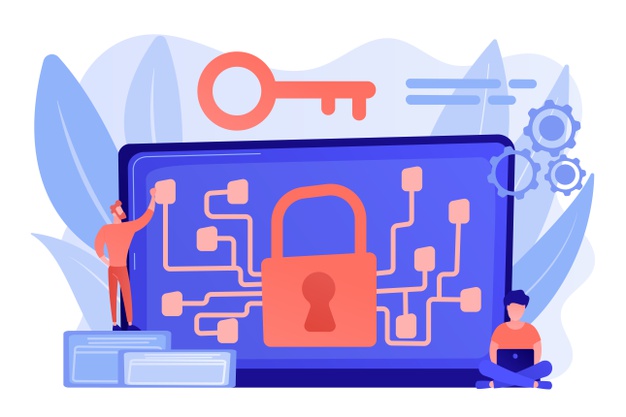
In the modern context, numerous businesses have resorted to incorporating technology in the implementation of their core operations. According to Investments (2018), the effective application of technological features fosters productivity via promoting accuracy and ensuring that the key activities are implemented within a short time. Blockchain is a technology that enables corporations to store transactional data in numerous databases to create a functional and useful network connected by peer-to-peer nodes. Similar to manual transactions, the business undertakings in the ledger are authorized by the owner through the use of a digital signature. The step authenticates the virtual transactions and prevents fraudulent cases, including tampering of records. Due to its effectiveness, this technology is being widely used in numerous corporations to foster accountability and safeguard data from potential manipulation by perpetrators. Precisely, the technology is critical in solving some of the common issues that affect corporations, such as cross-border payment delays, inefficient supply chain management, diminished accountability, and potential data breach, hence, enabling business organizations to meet their projected goals and objectives.

First, the current state of international transaction that utilizes banks to make payments is bureaucratic, hence derailing the efficiency and effectiveness of the business operations. Precisely, the conventional approach of making payment via third parties is costly and time-consuming, therefore, affecting the sustainability of businesses. According to Gallemore, Gipper, and Maydew (2019), numerous multinational corporations utilize banks to make transactions. Also, a report released by the World Bank states that the average transaction fee in international trade is 7% of the worldwide payment, which is very significant. The amount of money paid to the intermediaries (agency fees) adds to the corporations’ cost burden, hence diminishing profitability. Besides, some of the companies enter into future and forward contracts to hedge the potential foreign exchange risk. 3 However, the process is long, and it might result in substantial losses if the market dynamics fail to favor the corporation.

Blockchain addresses this problem by streamlining the transaction process. Precisely, the integrative nature of the technology eliminates the need of intermediaries or middlemen to conduct the main business transactions. The system integrates the key purchases and enables companies to remit the necessary payment to corporations in other jurisdictions. The use of a complex and secured ledger that is decentralized allows transactions to be recorded in real-time and the necessary payment disbursed to the receiving party. A report released by Deloitte indicates that entities that use blockchain technology to transact incur approximately between 40% and 80% fewer remittance fees than the companies that use the conventional method (banks). Also, the report shows that the entire transaction is recorded and finalized in about four to six seconds. Thus, it is evident that blockchain is integral in promoting efficiency. Second, the supply chain operations of numerous organizations in the industry are subject to controversies due to the high level of inefficiencies and malpractices. The supply chain entails the entire process from the acquisition to raw materials, production to the distribution of finished products to the consumers. Mostly, cases in the real-world show that supply chain operations are sometimes associated with fraudulent activities and enhanced overhead costs.

The officials might opt to use the platform to inflate the expenses and reap some of the extra proceeds from the company. The behavior erodes resources from the organizations, therefore, diminishing their long-term sustainability in the competitive market. Despite the application of other technologies such as machine learning and artificial intelligence, blockchain proves to be the most effective and efficient approach. Precisely, it fosters interoperability, therefore, promoting the sharing of data to foster accountability and information symmetry in supply chain management. Transparency in data sharing ensures that all the authorized personnel in different functional units trace the transactions and monitor potential variances that indicate ineffectiveness in operations, potential errors, or possible fraudulent activities. In addition, this technology enables officials and employees in the company to track products in real-time, hence reducing risk or misplacement that causes delays in the supply chain.
Also, the technology offers scalability, which enables corporations to use big data to manage their supply chain and ensure that the needs of the customers as well as the company are met. These features show the importance of blockchain technology in the supply chain. Third, most of the organizations in the modern era have resorted to using a centralized data management system to foster information symmetry, thus exposing the data to a potential breach. Precisely, a significant proportion of large corporations store their data on clouds (servers) to allow easy access to information when needed in different functional units. There have been numerous cases of data breaches in large multinational corporations.

For example, Equifax, which is one of the largest consumer credit reporting agencies in the US, reported a data breach that compromised the data of more than 148 million Americans. Also, more than 500 million users were affected by the data breach in Yahoo. In both cases, the companies faced serious reputational and financial damage. Thus, it is vital for organizations to institute viable measures that would combat this menace that has turned out to be a lucrative business in the modern context. Block-chain solves the issue by securing the data. Despite being transparent and public, blockchain bolsters data privacy by concealing the customers’ identity with sensitive codes. It also helps organizations to create a decentralized log of customers’ data that is open to authorized personnel only. Despite cybersecurity still being a threat, this technology reduces cases of a data breach in organizations.
Fourth, there has been increasing cases of enhanced costs in the design, implementation, and maintenance of data management system in many organizations. 5 Precisely, corporations find it difficult to create and maintain data infrastructure that is sustainable for unforeseeable future. Making data highly accessible in an organization needs frequent investment in and maintaining redundant infrastructure. Thus, the corporations need to outsource competent personnel to maintain the system or train their workers to be highly knowledgeable in the technology sphere. In both cases, the companies will incur enormous and recurrent expenses to keep up with the dynamics in the technological sphere. However, blockchain technology makes the lives of IT professionals easier. Precisely, it functions as a decentralized database that automatically disseminates essential data across nodes. Thus, technology makes data more accessible than in a centralized system. Also, it requires little to no investment in hardware and software to scale data hosting. To summarize, blockchain technology has been integral in solving numerous issues that affect many organizations in the modern context. The technology solves the problem of inefficient and ineffective international payments by eliminating the need for third-parties (banks) and eliminating the bureaucracies that delay transactions. Second, technology solves the problem of inefficiency and ineffectiveness in the supply chain by visualizing the process to enhance tracking and accountability. Third, enterprise blockchain technology reduces the cases of a data breach by concealing customer identities with sensitive codes. Finally, blockchain diminishes the cost of IT infrastructure by creating a decentralized database that automatically disseminates essential data across nodes. Therefore, it is important for entities to consider incorporating this feature in their core operations to enhance their profitability. However, companies need to conduct a cost-benefit analysis to determine whether the application of the technology is financially feasible for the organization. Contact pixelplex.io to get an overview on how enterprise blockchain development will contribute to your business.







